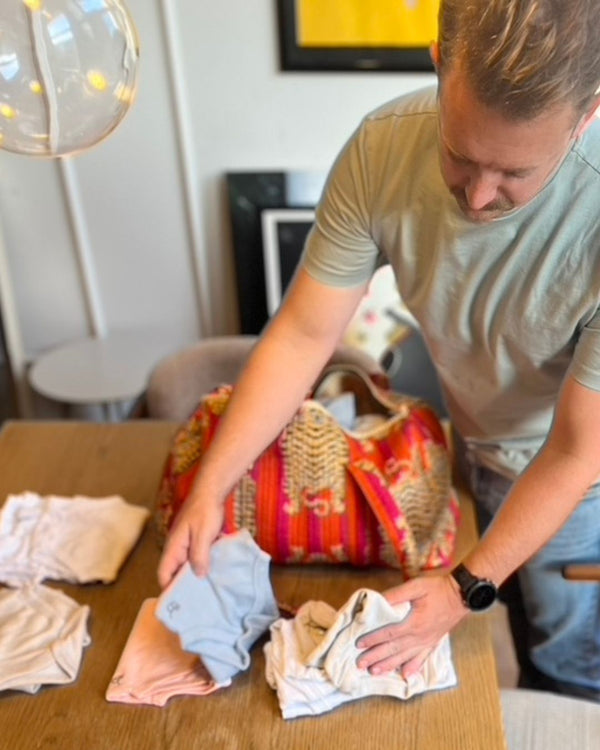Does having a baby make me better at my job?



The Unexpected Chaos: Why You Can't Plan for Everything. You can build an AI-powered to-do list, schedule meetings to the minute, and hand over work two weeks in advance, but there will always be elements you are not prepared for in your personal life that affect your professional. For us, our renovations ran late (as always in these cases), the heatwave was relentless, and we had builders in our flat just 24 hours before Artemis' arrival. This stressful chaos, ironically, became our blessing. It gave us no time to "sweat the small stuff"—like whether we had a specialised nappy bin. My biggest tip? Don't expect to have the birth you read about or feel you need to buy everything you are advised to get. Every journey is unique, with its own challenges and successes, and so was ours. (I can also guarantee that your parents did not have an automated rocker for your pram, and you turned out just fine!)
Pro tip for Dads - Find Your Place in the delivery room and stay there. You'll read all the books, attend all the classes, or, in our case, pretend you did. But nothing will make you feel more like a privileged spectator than watching your partner conquer the physical and emotional feat that is childbirth. There will be curveballs; for us, it was the chance of not making it to the hospital and using the car as a delivery room. But luckily, we made it, “just”. Once in the room, your job is simple: stand at the head end and repeat the flimsy word, "breathe,” and appreciate that sometimes it's a privilege to be surplus to requirements. And all of a sudden, your life has officially changed, and all you had to do was breathe!
The First 72 Hours: A Masterclass in Adaptability. The first few days are just about learning. A baby has enough food to last them 24hrs to give you time to get on top of your stuff - nature is wonderful that way. However, simple decisions become tough when you're running on no sleep. For us, a few Post-it notes on the wall became our lifeline, tracking feeds and nappies when we couldn't read the clock. My advice? Support and push each other to get bursts of sleep when you can. This way, you can show up better for your family. My role became the decision maker (and usually my partner is the household’s CEO) - I made sure she’s fed, I owned the nappy changes, I did the data tracking trying to be the emotional rock that was needed when big emotions hit, and they do - nature at play again. It's tough, so do your best to take out as much decision-making as possible.
So, my initial answer is YES; I am getting better at my job. At the very least, I have done a LinkedIn post, but I am also starting to see the less tangible benefits; Motivation is up as the value of running a positive impact business becomes even clearer when you have a kid in the world. Efficiency is also up, as I understand that being present in the moment at work makes it easier to decelerate and be fully present when with my family.
To come: further diving into my experiences and learnings with posts covering topics such as an honest review of Sproot products for first-time parents, reflections at 6 weeks, and some handy tips on our website that I wish I had known before labour.
I hope this has been relevant, relatable or at least mildly smile-worthy
#SocialEntrepreneurship #ImpactInvesting #circulareconomy #Newborn #NewDad #SprootSprouts #sprootbaby #organiccotton #sustainable #babybasics

